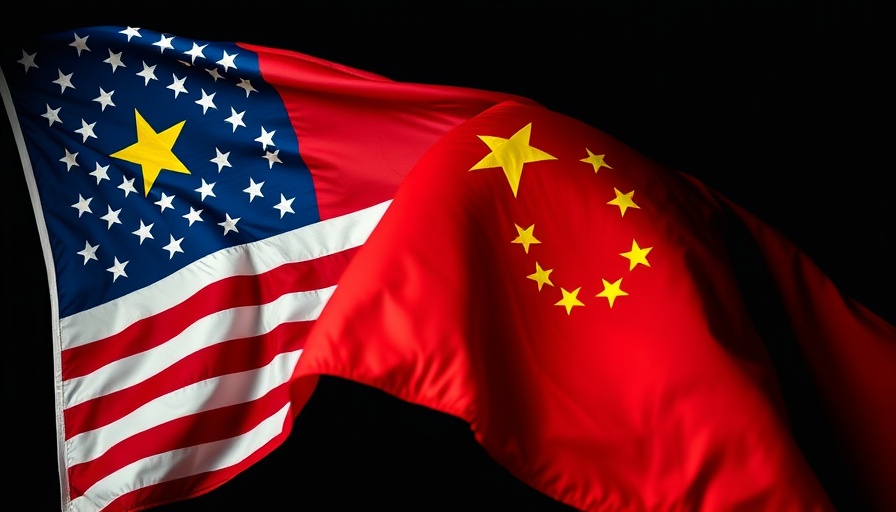
China's Strong Warning: What It Means for Global Trade
In a firm statement, China has warned that it will take retaliatory actions against countries that cooperate with the U.S., particularly in ways that compromise China's national interests. This warning emerged from the Chinese Ministry of Commerce amidst increasing tensions fueled by the ongoing trade war between the world’s two largest economies.
The Stakes in the U.S.-China Trade War
The current climate is marked by a notable escalation in trade tensions, with U.S. President Donald Trump’s administration reportedly seeking to leverage tariff negotiations as a means to deter countries from engaging in trade with China. Recently, Trump paused significant tariff increases on other nations for 90 days while extending tariffs on Chinese goods to as high as 145%. Such moves not only impact the economies involved but also send ripples through global markets, influencing how countries choose to align themselves in this geopolitical landscape.
China's Position: A Call for Fairness
China's Ministry of Commerce articulated its stance, emphasizing its commitment to international fairness and denouncing U.S. practices as "unilateral bullying." They articulated that any agreements struck at the expense of China's interests would provoke serious repercussions. This raises important questions about the nature of international trade and cooperation, particularly in a world where alliances are increasingly fluid.
Risks of International Trade Returning to the 'Law of the Jungle'
The Chinese government cautioned about a return to a dangerous form of international trade where might makes right—a so-called "law of the jungle." Such a paradigm presents significant risks, not only to China but to all parties involved, as it creates a more volatile market environment and diminishes the potential for collaborative economic growth.
Global Perspective: How Countries Might Respond
The global response to this warning is crucial. Nations that rely heavily on trade with the U.S. may face difficult decisions. Cooperation with China may open up new opportunities, but it could also jeopardize existing alliances with the U.S. Understanding these dynamics will be essential for countries navigating the trade waters as they adapt to changing landscapes and pursue their interests.
Conclusion
As China reacts to U.S. pressures, it becomes imperative for nations worldwide to remain informed and strategic in their trade relations. The upcoming months will be pivotal in reshaping the global economic order and redefining international relationships. By staying engaged in this dialogue and understanding its implications, we can empower ourselves and contribute to a more balanced global trade environment.
 Add Row
Add Row  Add
Add 




 Add Row
Add Row  Add
Add 

Write A Comment